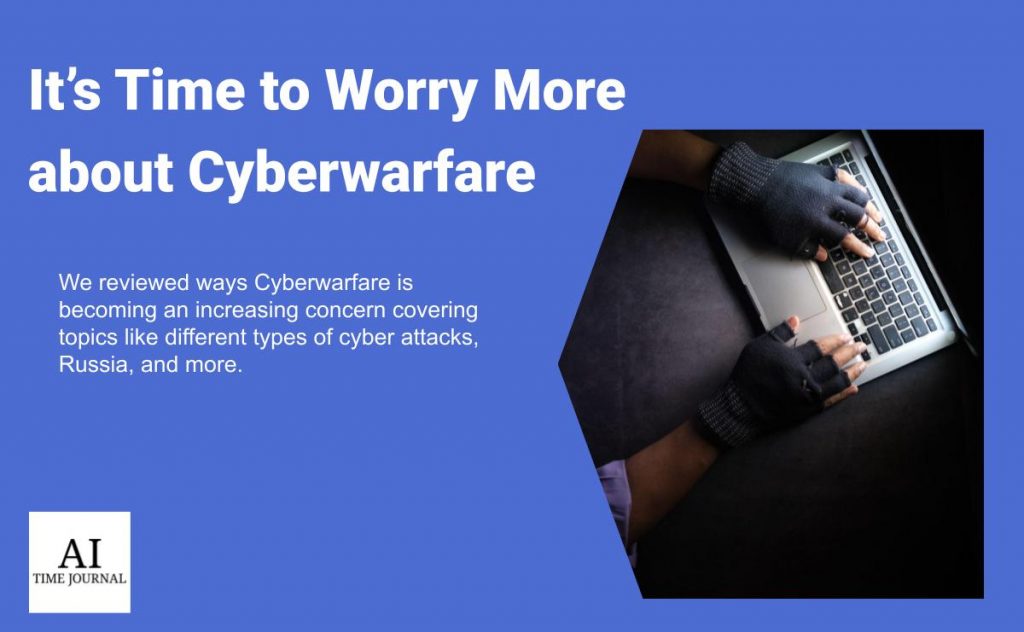
With Russia invading Ukraine, and its devastating consequences spreading all over the globe, cyber warfare has taken a more ominous form. Needless to say, we are not prepared at all.
Cyberwarfare, to date, had its challenge with definition as we were yet to understand how it manifests into something as significant as ‘warfare’.
However, Wikipedia still has a workable definition of cyber warfare useful enough for this discourse.
According to it, Cyberwarfare is the use of digital attacks against an enemy state, causing comparable harm to actual warfare and/or disrupting the vital computer systems. This definition is still not conclusive enough, as cyber-attacks (section of cyber warfare) are regularly committed by individual hackers, terrorists, and unidentified organizations too. Rarely, have governments taken responsibility for cyberattacks against inheritance countries, be it Russia, the USA, or China.
What are the types of cyber-attacks?
Cyber-attacks function in many ways. It could be political espionage on enemy countries, propaganda dissemination to more sinister things like direct cyber-attacks on military facilities, electric power grids, transport networks, government agencies, companies, and individuals leading to massive economic disruptions.
Cyber-attacks are carried out for various reasons, ranging from governments trying to cripple enemy governments, testing cyber intelligence prowess, and hackers using crypto viral extortion for livelihood.
All eyes are on Russia
Russia has a very impressive arsenal of cyber hackers who have shown incredible feats in cyber warfare.
With the war raging in Ukraine, the US and NATO allies are concerned that they’ll be at the receiving end of cyber-attacks which can and perhaps will mount to economic disruptions, as seen previously.
Glenn S Gerstel, a senior adviser at the Center for Strategic and International Studies and the former general counsel of the National Security Agency, in an interview with The Guardian, said ‘If we had approached this correctly 20 years ago, we would be largely invulnerable to cyber-attacks,” he said. “But unfortunately, that is not the case.”
Russia has repeatedly waged cyberattacks against Ukraine and other Western Allies, which have cost the global economy a lot.
A few major events of such cyber attacks were:
1. Back in May 2021, Colonial Pipeline, which supplies 45% of the East Coast’s fossil fuel, was the victim of ransomware by Russian-based hackers. This had cost the company millions of dollars to regain control of the pipeline again, triggering a state of emergency in the several US States.
2. Not Petya and WannaCry, Russian-built malware and ransomware, had disrupted the global economy back in 2017, starting with Ukraine. Reputed Industries such as Merck, Maersk, and the UK’s NHS were victims too.
3. The 2015 electricity power grid hack, called Black Energy, in Ukraine by Russian hackers had plunged thousands of citizens into an electric blackout for hours.
4. During the early hours of the Ukraine invasion, Russian hackers had repeatedly attacked the government and important social media accounts and websites of Ukraine as early acts of cyber warfare.
5. A more indirect and subtle act of cyber warfare, was the Russian interference in the US Presidential election of 2016, with the intent of spreading propaganda against the Democrats, and in favor of Donald Trump
Will history repeat itself?
The invasion of Ukraine has the potential to trigger further cyber offenses from Russia, as the world powers overwhelmingly side with Ukraine.
George Perera, the associate director of cybersecurity law at St. Thomas University, in an interview with Vox, said that a cyberattack from Russia would likely target critical infrastructure, and, if successful, “could be devastating.”
Not only critical government bodies, but private companies might be at the receiving end of cyber warfare, waged by seasoned Russian hackers, who in this case, will have strong state backing.
As of this week, the Biden administration has warned US companies and Allies to be vigilant against Putin’s arsenal of some of the finest hackers from Russian cyberspace, according to Politico.
What should be done now?
The US and NATO Allies must boost their cyber security efforts in the energy, transport, military, food, and private sector to avoid further economic disruptions and a potential full-on cyber warfare. Otherwise, it won’t be long until our hyper Interconnected cyberspace, and therefore our reality becomes more and more fractured with cyber-attacks.